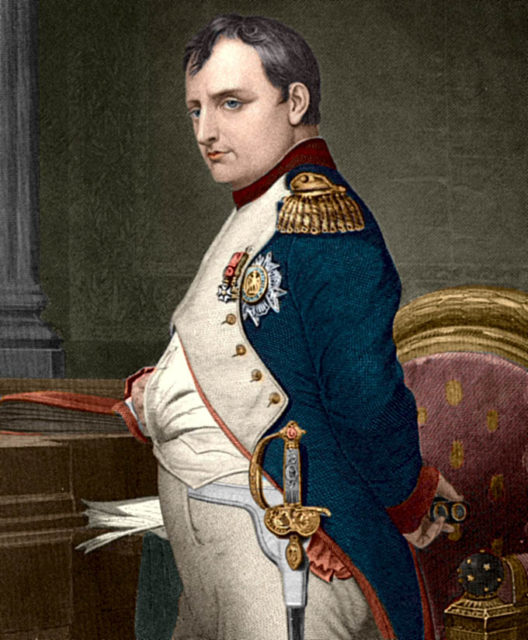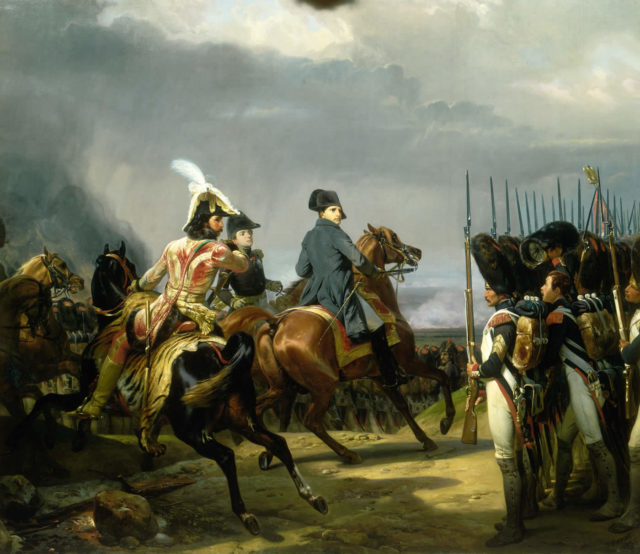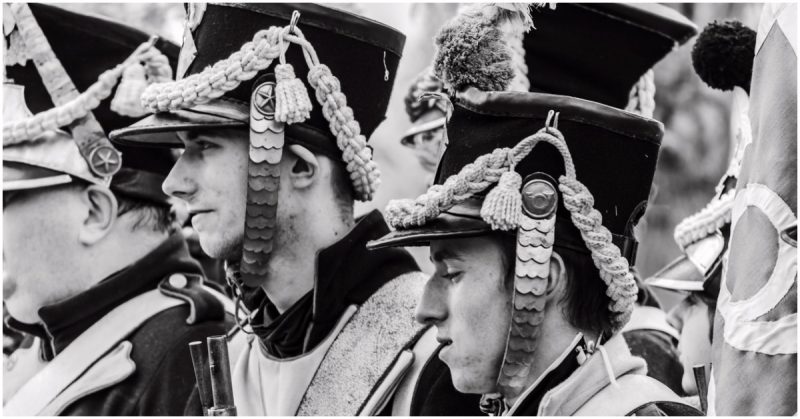From 1792 to 1797, France fought a multi-fronted war against the First Coalition, the first of many attempts to bring the revolutionary nation to heel. Campaigns in Italy proved decisive, both for the war and for France’s domestic politics. Among the city states of northern Italy, a young commander named Napoleon Bonaparte inflicted crushing defeats on the Austrian Empire and her allies. This massively undermined the strength of the First Coalition, winning the war for France. It also assured Napoleon’s political ascendance, turning the obscure Corsican into a national hero who would become emperor.
This massively undermined the strength of the First Coalition, winning the war for France. It also assured Napoleon’s political ascendance, turning the obscure Corsican into a national hero who would become emperor.
But victory in Italy was far from a foregone conclusion. It is a reflection of Napoleon’s brilliance that his victory came when the odds were stacked so badly against him.
Youth and Inexperience
Napoleon was only 26 when he was sent to command the troops in Italy. It was a remarkably young age for a general in any era, meaning that he lacked the military experience of many of his opponents, as well as the credibility that came from long service.
Prior to Italy, Napoleon’s most notable achievements were as artillery commander at the Siege of rebellious Toulon and as the man who turned cannons on rioters during the 13 Vendémiaire uprising. He had proven smart and courageous but had no experience of such exalted command.

Promotion Out of the Way
The promotion to command in Italy was a poisoned chalice – part reward for a fine performance, part side-lining of a political threat.
Napoleon had recently married. His wife, Josephine, was well connected in the republic, friendly with the Directors running the country. Her influence, together with his role in saving the government from overthrow on 13 Vendémiaire, had earned Napoleon enough good will to gain command of an army.
But the very factors that earned him the promotion made him a threat to the government. He was smart, energetic and famous. In a decade of political plots and repeated coups, he was the sort of man who might rise to lead the nation. So he was given command of the army in Italy, the worst supported of France’s 13 field armies, a military force in a state of neglect.
Numbers
The Army of Italy wasn’t just neglected, it was also undermanned. 37,000 French faced 50,000 Allied troops, with the Allied nations less thinly stretched and so better able to provide reinforcements. Most French resources were being thrown into fighting further north, as the massed armies of Europe grappled for control of the region around the Rhine.
The best chance to get more troops was to free up another French force under General Kellerman. Doing this meant fighting an additional Allied force of 20,000 men.
Napoleon was up to the task. Through fast maneuvering he was able to bring more power to bear than his opponents, taking out the Italian state of Piedmont in only two weeks and suffering only 6,000 casualties compared with 25,000 Allied losses.
Yet he was still outnumbered.
Defeat in Germany
While Napoleon was chasing the Allies around the Alps, his comrades were facing defeat. In 1796, Archduke Charles of Austria beat the French in southern Germany.
Loss elsewhere is never good for an army. Events in Germany could easily have drawn resources away from Napoleon’s lower priority campaign in Italy, as well as shaking the morale of his men.
It is a testament to the inspiration Napoleon provided, both through his personal leadership and through his successes, that the men remained firm and he was not robbed of supplies by a panicking government. In fact, his successes helped to distract Archduke Charles, drawing him back on the defensive and preventing him from capitalising on his success.
Complicated Plans

The more complicated a plan, the more likely it is to go wrong. Napoleon’s plans were often fragile things, relying on swift marches, careful coordination and the precise application of military force.
It was a complication born of necessity. The Allies outnumbered him and fought with a home ground advantage. Careful planning let Napoleon develop schemes that could overcome these advantages. Fortunately for him, he was as capable of executing these maneuvers as he was of planning them. In lesser hands, or if fortune had turned against him, these same schemes could have ended in disaster.
Disease
Any army is prone to sickness. Diseases love nothing more than a large number of people living in close quarters, where germs can easily travel from one victim to the next. Add in wounds, dead bodies, spoiled supplies and the improvised sanitation of a military camp, and you have a recipe for widespread infection.
By the late days of Napoleon’s campaign, this was a growing problem for his army. The more men fell sick, the more vectors for disease were created, and the more were lost from active service.
Supply Lines
The further he penetrated into Italy, the more vulnerable Napoleon’s supply lines grew. Rebellions in his rear threatened to cut off the supplies he needed to keep his men fed and armed.
There were plenty of reasons for rebellion against him. Many Italians resented being invaded by a foreign power. Those closely associated with previous regimes stood little chance of power under the new government. Some opposed the republican principles for which France stood.
In dealing with this, Napoleon turned one of his weaknesses into a strength. The initial revolts having been put down by government commissars, he created a long-term political solution in the form of the Cispadane Republic and the Transpadane Republic. These new nations, made up of conquered territory, had governments that owed their position to the French. While royalists still resented them, Italian republicans now had cause to side with the invaders. Napoleon reached far beyond his political remit, and in doing so ensured his supply lines.
